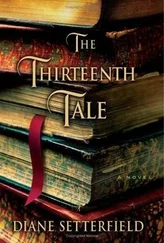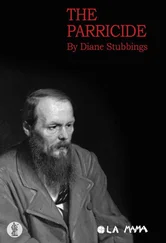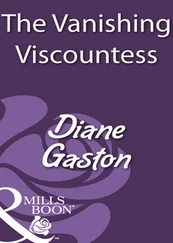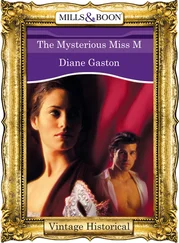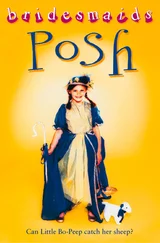I doubt any one fix will do. We need systemic policy changes that begin at the government level, renewable energy replacing fossil fuels, widespread green building practices, grassroots community and nationwide projects, and individuals doing whatever they can, from composting and recycling to walking to work instead of driving.
In the Industrial Age we found it thrilling to try to master nature everywhere and in every way we could think of. In the Anthropocene, we’re engineering ways to help the most vulnerable people adapt, and designing long-term solutions to blunt global warming. Humans are relentless problem-solvers who relish big adventures, and climate change is attracting a wealth of clever minds and unorthodox ideas, as we’re revisiting the art of adapting to the environment—a skill that served our ancestors well for millennia, while they fanned out to populate the Earth from equator to ice.
We can survive our rude infancy and grow into responsible, caring adults—without losing our innocence, playfulness, or sense of wonder. But first we need to see ourselves from different angles, in many mirrors, as a very young species, both blessed and cursed by our prowess. Instead of ignoring or plundering nature, we need to refine our natural place in it.
NATURE IS STILL our mother, but she’s grown older and less independent. We’ve grown more self-reliant, and as a result we’re beginning to redefine our relationship to her. We still need and cling to her, still find refuge in her flowing skirts, and food at her table. We may not worship Mother Nature, but we love and respect her, are fascinated by her secrets, worry about alienating her, fear her harshest moods, cannot survive without her. As we’re becoming acutely aware of just how vulnerable she truly is, we’re beginning to see her limits as well as her bounty, and we’re trying to grow into the role of loving caregivers.
I’m all for renaming our era the Anthropocene—a legitimate golden spike based on the fossil record—because it highlights the enormity of our impact on the world. We are dreamsmiths and wonder-workers. What a marvel we’ve become, a species with planetwide powers and breathtaking gifts. That’s a feat to recognize and celebrate. It should fill us with pride and astonishment. The name also tells us we are acting on a long, long geological scale. I hope that awareness prompts us to think carefully about our history, our future, the fleeting time we spend on Earth, what we may leave in trust to our children (a full pantry, fresh drinking water, clean air), and how we wish to be remembered. Perhaps we also need to think about the beings we wish to become. What sort of world do we wish to live in, and how do we design that human-made sphere?
Our portrait as individuals will exist, for a while, in books, photographs online, and videos, to be sure. But to know us as a species, far-future humans will need to look to the fossil record of the planet itself. That will tell a tale frozen in ribbons of time. What will it say about us?
We’re at a great turning, our own momentous fork in the road, behind us eons of geological history, ahead a mist-laden future, and all around us the wonders and uncertainties of the Human Age.
These days, startling though the thought is, we control our own legacy. We’re not passive, we’re not helpless. We’re earth-movers. We can become Earth-restorers and Earth-guardians. We still have time and talent, and we have a great many choices. As I said at the beginning of this mental caravan, our mistakes are legion, but our imagination is immeasurable.
NATURE {'NĀ-CH  R} N. The full sum of creation, from the Big Bang to the whole shebang, from the invisibly distant to the invisibly minute, which everyone should pause to celebrate at least once daily, by paying loving attention to such common marvels as spring moving north at thirteen miles a day; afternoon tea and cookies; snow forts; pepper-pot stew; moths with fake eyes on their hind wings; emotions both savage and blessed; pogostick-hopping sparrows; blushing octopuses; scientists bloodhounding the truth; memory’s wobbling aspic; the harvest moon rising like slow thunder; tiny tassels of worry on a summer day; the night sky’s distant leak of suns; an aging father’s voice so husky it could pull a sled; the courtship pantomimes of cardinals whistling in the spring with what cheer, what cheer, what cheer! Nature is life homesteading every pore and crevice of Earth, with endless variations on basic biological themes. Ex.: tree frogs with sticky feet, marsupial frogs, poisonous frogs, toe-tapping frogs, frogs that go peep, etc.
R} N. The full sum of creation, from the Big Bang to the whole shebang, from the invisibly distant to the invisibly minute, which everyone should pause to celebrate at least once daily, by paying loving attention to such common marvels as spring moving north at thirteen miles a day; afternoon tea and cookies; snow forts; pepper-pot stew; moths with fake eyes on their hind wings; emotions both savage and blessed; pogostick-hopping sparrows; blushing octopuses; scientists bloodhounding the truth; memory’s wobbling aspic; the harvest moon rising like slow thunder; tiny tassels of worry on a summer day; the night sky’s distant leak of suns; an aging father’s voice so husky it could pull a sled; the courtship pantomimes of cardinals whistling in the spring with what cheer, what cheer, what cheer! Nature is life homesteading every pore and crevice of Earth, with endless variations on basic biological themes. Ex.: tree frogs with sticky feet, marsupial frogs, poisonous frogs, toe-tapping frogs, frogs that go peep, etc.
Archaic : In previous eras, when humans harbored an us-against-them mentality, nature meant the enemy, and the kingdom of animals didn’t include humans (who attributed to other animals all the things about themselves they couldn’t stand).
Anthropocene: Nature surrounds, permeates, effervesces in, and includes us. At the end of our days it deranges and disassembles us like old toys banished to the basement. There, once living beings, we return to our nonliving elements, but we still and forever remain a part of nature.
Many thanks to the kind souls featured in this book, who welcomed me so graciously into their work lives: Hod Lipson, Ann and Bryan Clarke, Lawrence Bonassar, Bren Smith, Terry Jordan, Matt Berridge, and others. Continued thanks to my agent, Suzanne Gluck, and my editor, Alane Salierno Mason, for all their encouragement and guidance. I’m grateful to the editors of Orion and the New York Times Sunday Review , who invited variations on a few of the themes. Heartfelt thanks for their support and friendship to my treasured book group (Peggy, Anna, Jeanne, Charlotte, and Joyce); and to Dava, Whitney, Philip, Oliver, Steve, Chris, Lamar, Rebecca and David, Dan and Caroline; Kate, for first reading the manuscript; and my assistant, Liz, who read the manuscript in its many permutations, expansions, and contractions, until eye-glaze finally set in; and to Paul, the only fiction-writing and oldest living wombat.
Allen, Robert, ed. Bulletproof Feathers: How Science Uses Nature’s Secrets to Design Cutting-Edge Technology . Chicago: University of Chicago Press, 2010.
Allenby, Braden. Reconstructing Earth: Technology and Environment in the Age of Humans . Washington, DC: Island Press, 2005.
Allenby, Braden R., and Daniel Sarewitz. The Techno-Human Condition . Cambridge, MA: MIT Press, 2011.
Alley, Richard B. Earth: The Operators’ Manual . New York: W. W. Norton, 2011.
Anderson, Walter Truett. All Connected Now: Life in the First Global Civilization . Boulder, CO: Westview Press, 2004.
———. Evolution Isn’t What It Used to Be: The Augmented Animal and the Whole Wired World . New York: W. H. Freeman, 1996.
Anthes, Emily. Frankenstein’s Cat: Cuddling Up to Biotech’s Brave New Beasts . London: Oneworld, 2013.
Balmford, Andrew. Wild Hope: On the Front Lines of Conservation Success . Chicago: University of Chicago Press, 2012.
Bates, Marston. Man in Nature . 2nd ed. Englewood Cliffs, NJ: Prentice-Hall, 1964.
Bauerlein, Mark, ed. The Digital Divide: Arguments for and against Facebook, Google, Texting, and the Age of Social Networking . New York: Tarcher/Putnam, 2011.
Benyus, Janine. Biomimicry: Innovation Inspired by Nature . New York: William Morrow, 2002.
Berry, Thomas. The Dream of the Earth . San Francisco: Sierra Club Books, 1990.
Blanc, Patrick. The Vertical Garden: From Nature to the City . Revised and updated ed. Trans. Gregory Bruhn. New York: W. W. Norton, 2011.
Читать дальше
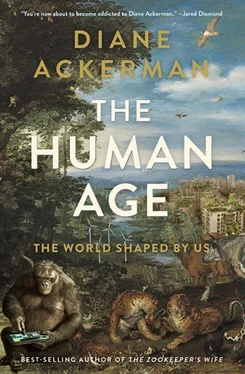
 R} N. The full sum of creation, from the Big Bang to the whole shebang, from the invisibly distant to the invisibly minute, which everyone should pause to celebrate at least once daily, by paying loving attention to such common marvels as spring moving north at thirteen miles a day; afternoon tea and cookies; snow forts; pepper-pot stew; moths with fake eyes on their hind wings; emotions both savage and blessed; pogostick-hopping sparrows; blushing octopuses; scientists bloodhounding the truth; memory’s wobbling aspic; the harvest moon rising like slow thunder; tiny tassels of worry on a summer day; the night sky’s distant leak of suns; an aging father’s voice so husky it could pull a sled; the courtship pantomimes of cardinals whistling in the spring with what cheer, what cheer, what cheer! Nature is life homesteading every pore and crevice of Earth, with endless variations on basic biological themes. Ex.: tree frogs with sticky feet, marsupial frogs, poisonous frogs, toe-tapping frogs, frogs that go peep, etc.
R} N. The full sum of creation, from the Big Bang to the whole shebang, from the invisibly distant to the invisibly minute, which everyone should pause to celebrate at least once daily, by paying loving attention to such common marvels as spring moving north at thirteen miles a day; afternoon tea and cookies; snow forts; pepper-pot stew; moths with fake eyes on their hind wings; emotions both savage and blessed; pogostick-hopping sparrows; blushing octopuses; scientists bloodhounding the truth; memory’s wobbling aspic; the harvest moon rising like slow thunder; tiny tassels of worry on a summer day; the night sky’s distant leak of suns; an aging father’s voice so husky it could pull a sled; the courtship pantomimes of cardinals whistling in the spring with what cheer, what cheer, what cheer! Nature is life homesteading every pore and crevice of Earth, with endless variations on basic biological themes. Ex.: tree frogs with sticky feet, marsupial frogs, poisonous frogs, toe-tapping frogs, frogs that go peep, etc.


